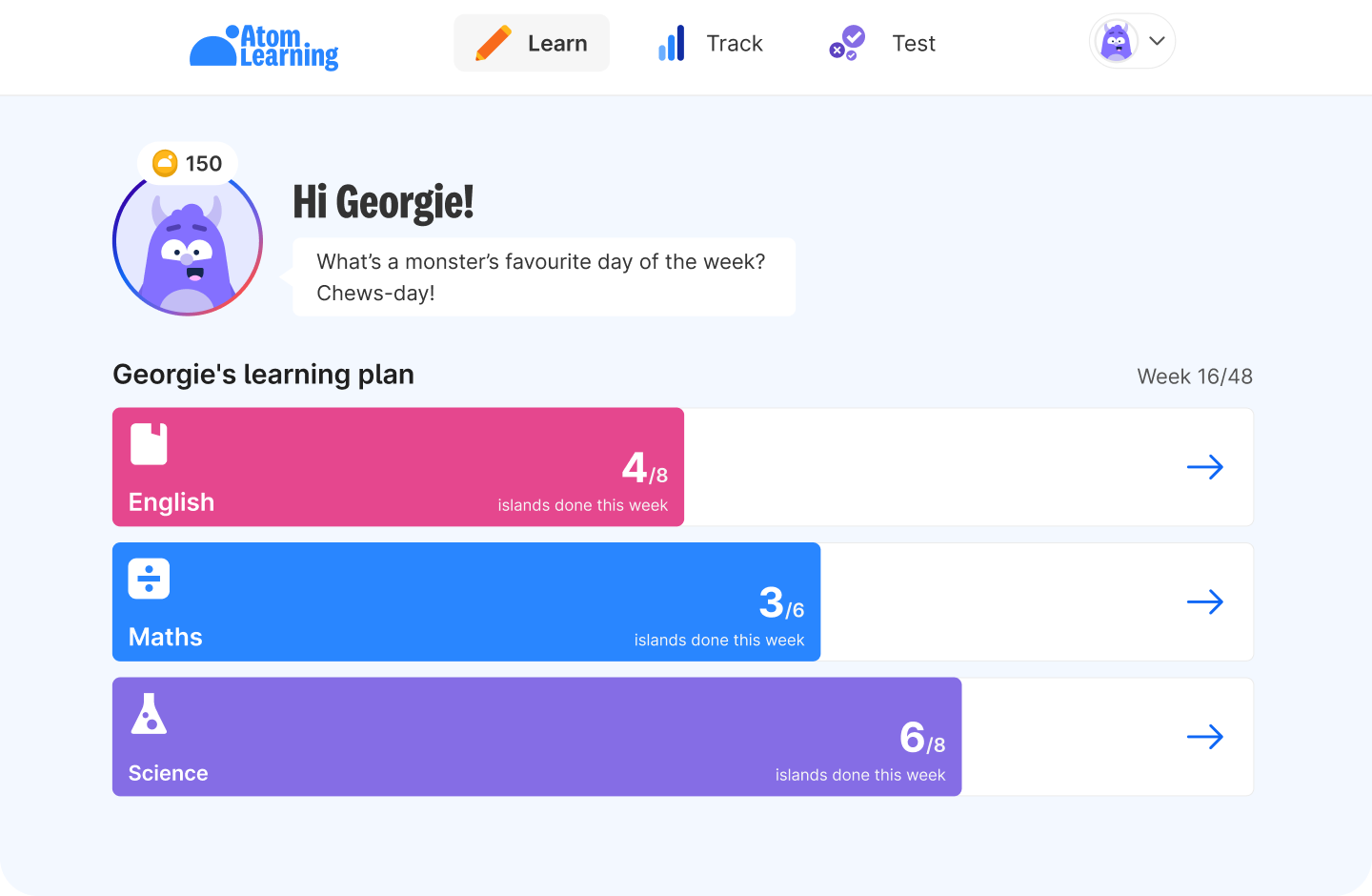Top board games for building maths, English & logic skills

Looking for a screen-free way to help your child build key learning skills at home? Board games are a brilliant option, and not just for rainy afternoons or family games nights. As well as offering quality time together, the right board games can boost your child’s confidence in core subjects like English, maths and science.
At Atom Learning, we know that play is a powerful way to learn. From developing teamwork and time management to strengthening logic and reasoning, games can help children build the skills they need to thrive in the classroom, in exams, and in everyday life.
To help you choose, we’ve rounded up our favourite educational board games for ages 7–11. Whether your child is preparing for the 11 plus or just loves a challenge, these games support STEM learning, problem-solving and creative thinking – all while keeping things fun.
Board games for non-verbal reasoning skills
Non-verbal reasoning is tested in many school entrance exams, including grammar school 11+ exams, the ISEB Pre-Test, Cambridge Select Insight, and CAT4.
It involves solving problems using shapes, patterns and sequences – not words or numbers. These questions help assess a child’s logic, spatial awareness and visual reasoning.
Because non-verbal reasoning doesn’t depend on language, it’s a useful way to gauge problem-solving skills across all learners.
Backgammon
- Recommended age: 8+
- Educational objectives: Logical and strategic thinking
- Why we love it: Backgammon has stood the test of time, and for good reason. It’s quick to pick up but packed with opportunities for strategic planning and risk assessment. Kids will practise counting, probability and logic with every move, all while enjoying the thrill of the game.
Chess
- Recommended age: 6+ (younger children might enjoy with adult guidance)
- Educational objectives: Problem solving and strategy
- Why we love it: Chess is the ultimate brain workout. It encourages children to think several steps ahead, consider consequences and adapt their approach – all brilliant skills for exams and beyond. And once they know the rules, there’s no limit to how far they can go!
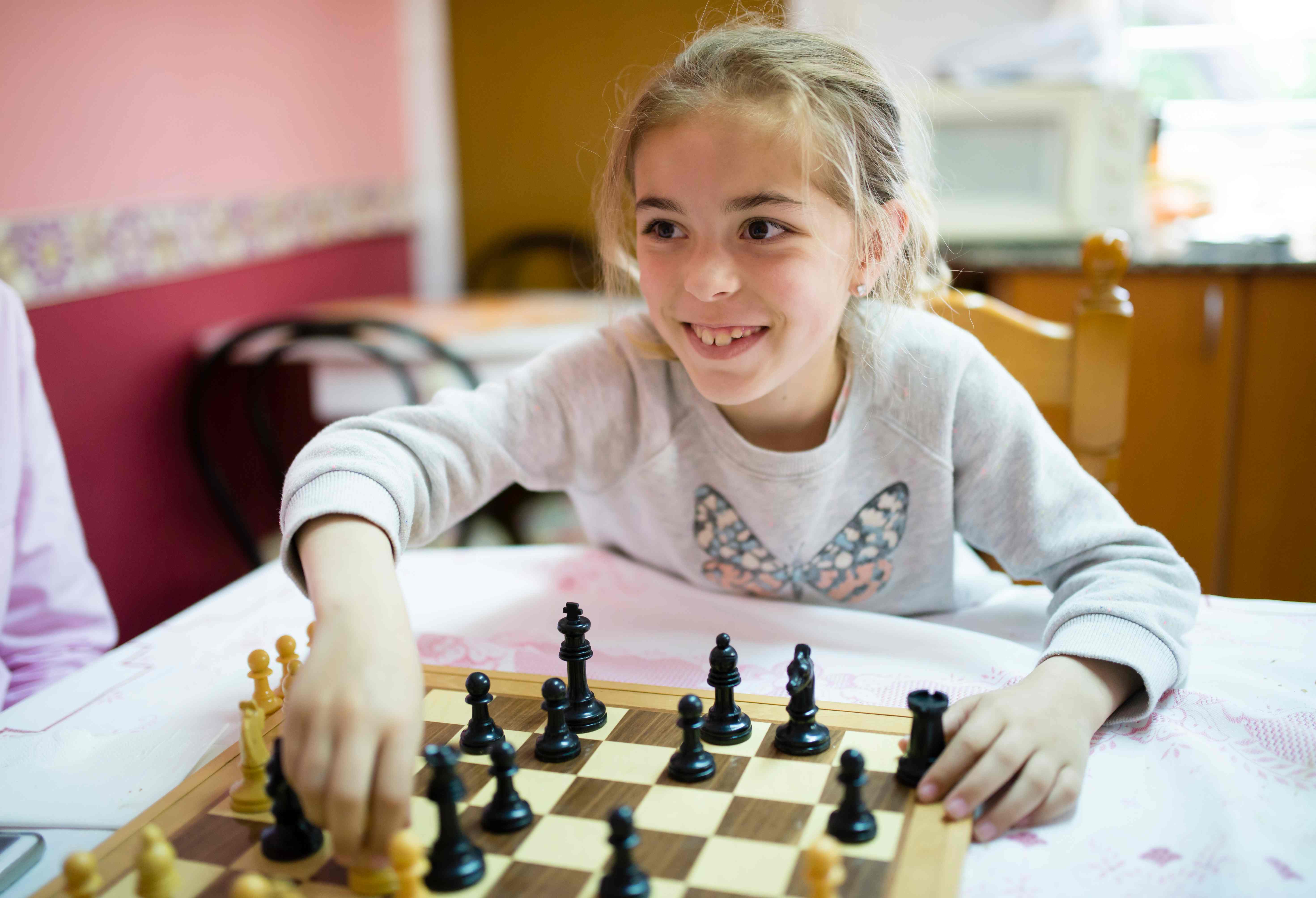
Connect 4
- Recommended age: 5+
- Educational objectives: Logical and strategic thinking
- Why we love it: This classic game is quick to learn and endlessly re-playable. As children try to get four in a row, they’ll develop pattern recognition, forward thinking and tactical decision-making. It’s a great introduction to strategic play, and a brilliant option for short bursts of screen-free fun.
Draughts (checkers)
- Recommended age: 6+
- Educational objectives: Problem solving
- Why we love it: A fantastic introduction to abstract thinking and spatial awareness. Draughts teaches children to weigh up risks, plan sequences and stay focused under pressure, all within the familiar grid of a checkered board.
Mancala
- Recommended age: 6+
- Educational objectives: Strategic thinking
- Why we love it: With roots stretching back thousands of years, Mancala is beautifully simple yet endlessly engaging. Children will sharpen their planning, counting and decision-making skills as they try to outwit their opponent. It only takes a few minutes to set up and play!
Mastermind
- Recommended age: 8+
- Educational objectives: Logical thinking
- Why we love it: A brilliant two-player game for building deductive reasoning. One player creates a secret colour code, while the other uses logic and trial-and-error to crack it. It’s satisfying, fast-paced, and helps develop the kind of focused thinking that supports non-verbal reasoning skills.
Sequence
- Recommended age: 7+
- Educational objectives: Strategic thinking
- Why we love it: A fun and fast-paced game that blends luck with strategy. Players race to make five in a row by matching cards to spaces on the board – but with each card pictured twice, smart choices and sharp observation are key. Great for ages 7+, and a favourite for family game nights!
Board games for maths and numerical reasoning skills
These fun and engaging games are perfect for reinforcing Key Stage 2 maths skills and preparing for entrance exams – without the need for worksheets or screens! From number bonds to budgeting, they bring numbers to life in a way kids will love.
Battleships
- Recommended age: 7+
- Educational objectives: Strategic thinking, spatial reasoning and coordinates
- Why we love it: A timeless two-player game that helps children get to grips with grids and coordinates – a key topic in Key Stage 2 maths. Players practise logic and strategy as they try to guess the hidden locations of their opponent’s ships. Bonus: it’s also great for patience and attention to detail!
Darts
- Recommended age:( 8+ (with a child-safe dartboard if needed!)
- Educational objectives: Mental maths, subtraction and multiplication
- Why we love it: Whether you’re using a real board or a magnetic version, darts offers brilliant number practice. Players need to subtract quickly from 501 and aim for the best scoring zones to win, all while honing fine motor skills and mental maths under pressure.
Monopoly
- Recommended age: 8+
- Educational objectives: Number fluency, budgeting and financial thinking
- Why we love it: A brilliant way to explore money management in a fun, family setting. Children practise quick calculations, keep track of spending, and make strategic choices about buying, saving and trading. It’s also a great introduction to basic financial literacy.
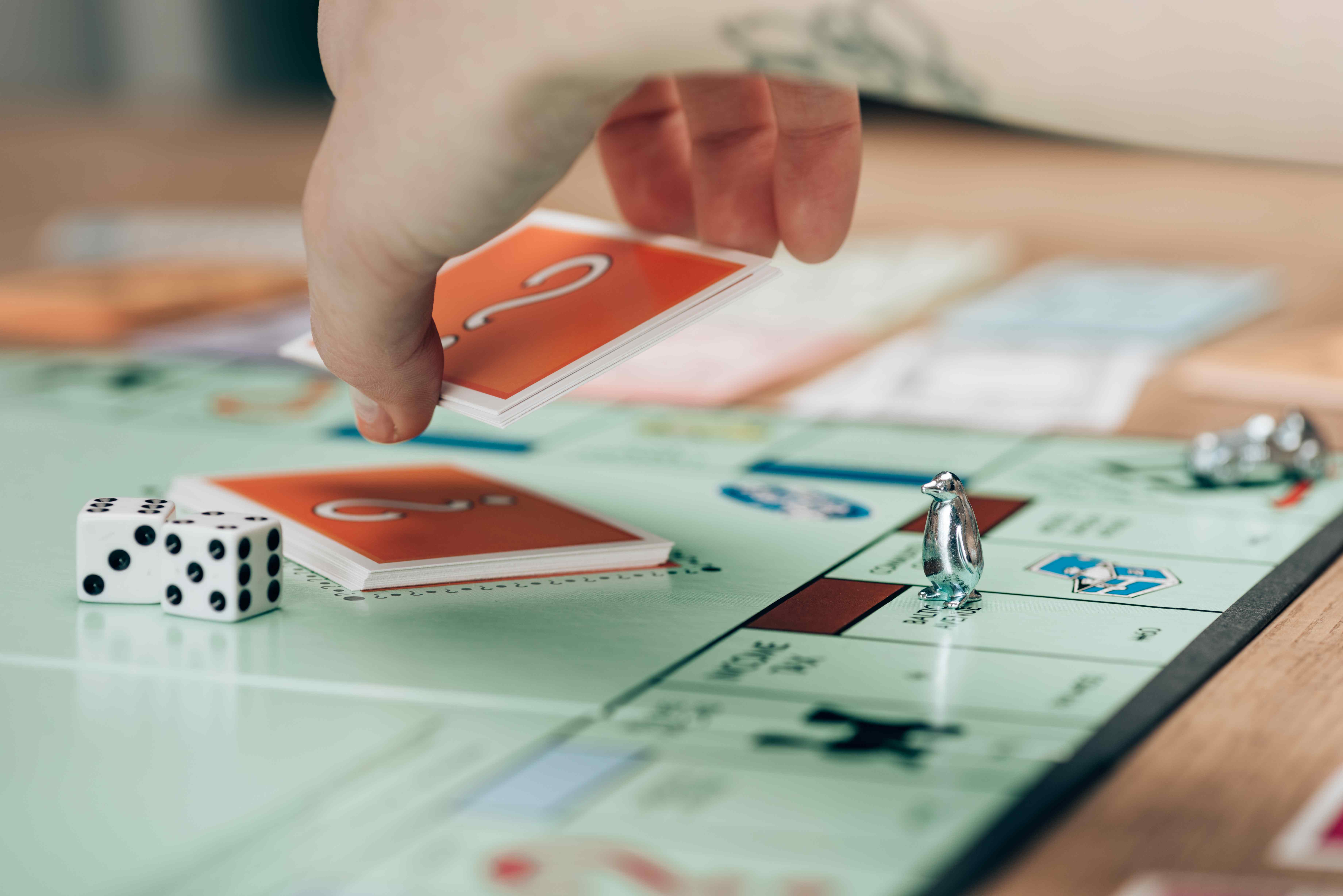
Shut the Box
- Recommended age: 6+
- Educational objectives: Addition, subtraction and number bonds
- Why we love it: This fast-paced game is perfect for developing number fluency. Children roll the dice and choose which number combinations to “shut” – meaning every round involves speedy mental addition and subtraction. It’s great for younger learners and easy to adapt for different levels.
Yahtzee
- Recommended age: 7+
- Educational objectives: Addition, probability and strategic thinking
- Why we love it: This classic dice game is full of maths moments – from quick addition to decision-making based on probability. Younger players will enjoy the fast pace, while older children can practise more advanced strategy as they chase the highest score across 13 rounds.
Board games for verbal reasoning and English skills
Verbal reasoning is all about understanding and solving problems using words – a key skill in many 11+ exams, as well as Key Stage 2 English.
The games below are brilliant for boosting vocabulary, reading fluency and logical thinking with language. They’ll support your child’s success in school, exams, and conversations around the dinner table!
Articulate for Kids
- Recommended age: 6+
- Educational objectives: Vocabulary, verbal fluency and time management
- Why we love it: Fast, fun and full of laughter! In this quick-thinking word game, players describe words without saying them directly, helping to build a rich vocabulary and awareness of synonyms. Children also develop listening skills, clear communication, and confidence speaking under time pressure.
Bananagrams
- Recommended age: 7+
- Educational objectives: Spelling, vocabulary, time management
- Why we love it: A fun, fast-paced alternative to Scrabble, and perfect for reluctant spellers! Players race to create interconnected word grids using their letter tiles, building spelling skills and word recall along the way. Great for quick games with two players or larger family groups.
Codenames
- Recommended age: 10+ (or younger with family edition)
- Educational objectives: Vocabulary, associations and inference
- Why we love it: A brilliant game for encouraging lateral thinking and making connections between words. Spymasters give clever clues to guide their teammates toward the right words on the board – without revealing the other team’s. It’s ideal for older children who are building verbal reasoning skills like inference and ambiguity.
Dixit
- Recommended age: 8+
- Educational objectives: Creative writing, storytelling, comprehension
- Why we love it: A beautifully illustrated game that sparks creativity. Players take turns inventing a story or phrase inspired by a surreal image card, and the others try to guess which card matches. It’s fantastic for encouraging imagination, interpreting visual cues, and crafting ideas – all great preparation for 11+ creative writing.
Guess Who?
- Recommended age: 6+
- Educational objectives: Deduction, descriptive language and antonyms
- Why we love it: A classic game of elimination that sharpens logic and spoken language. Children practise asking clear, specific questions and using opposites (antonyms) to narrow down the options. It’s simple, satisfying, and great for developing reasoning and language accuracy.
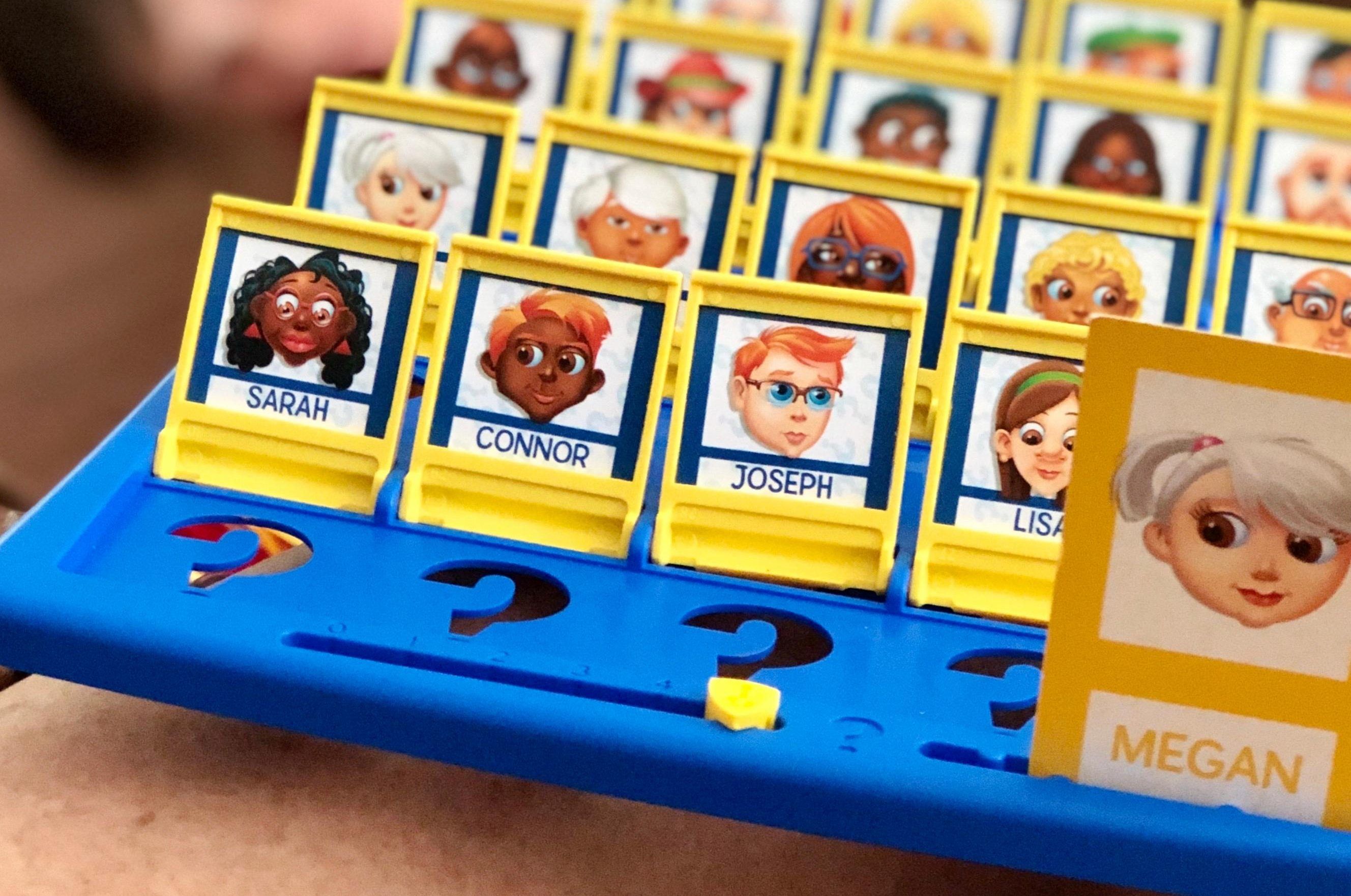
Build strong English, maths and science skills.
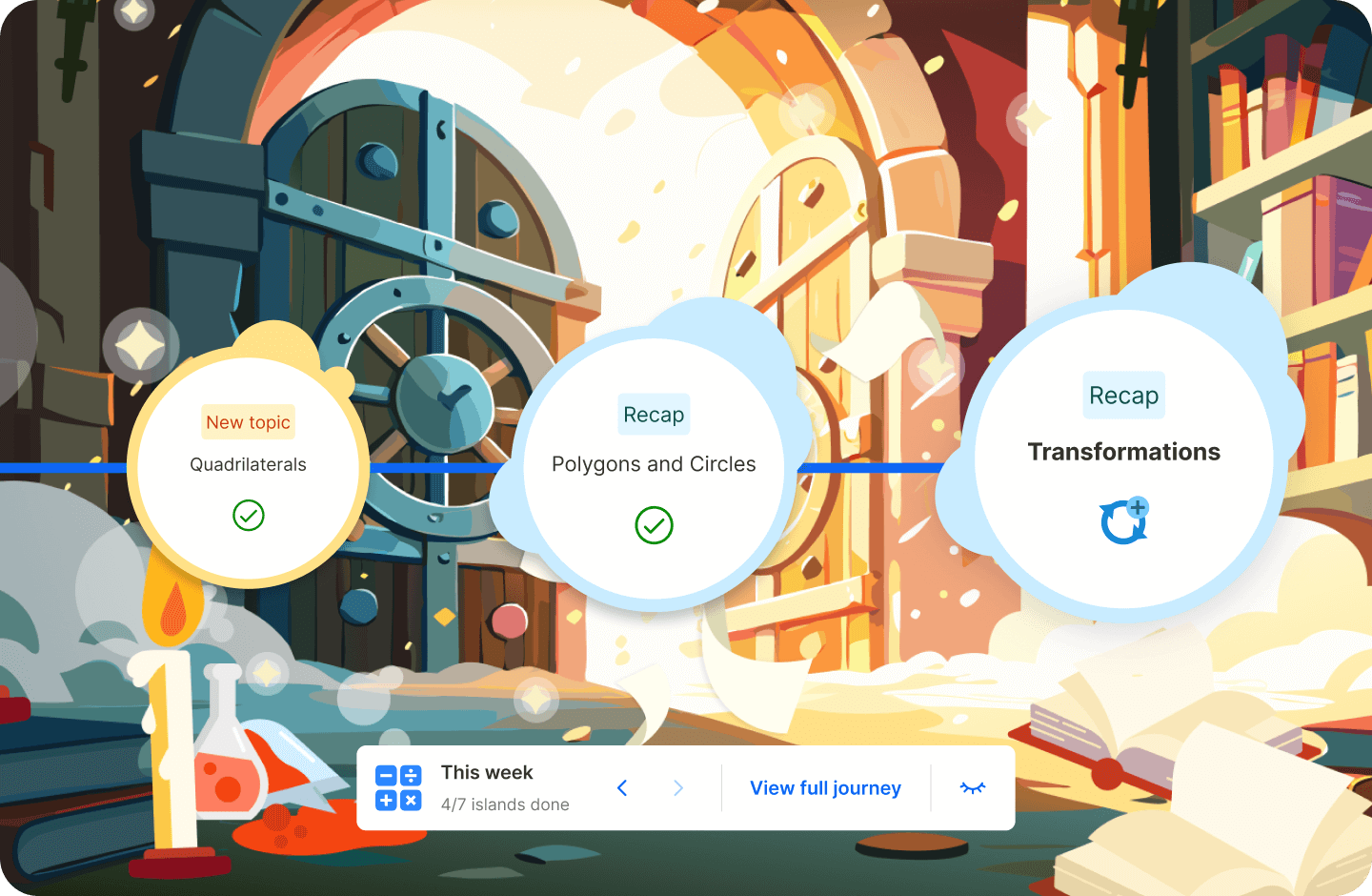
Want to support what your child is learning at school, or help them stretch beyond it? Atom gives them the right blend of challenge and support. Help them strengthen foundations, deepen understanding, and grow confident in the subjects that matter most for Key Stage 2 and beyond.
- Follow personalised weekly learning plans that adapt to your child’s level and keep them progressing in English, maths and science.
- Learn through interactive lessons that stretch their thinking and reinforce key skills.
- Track progress topic by topic. See their strengths and pinpoint where they need to improve.
Start your free trial and help your child make real school progress today.
